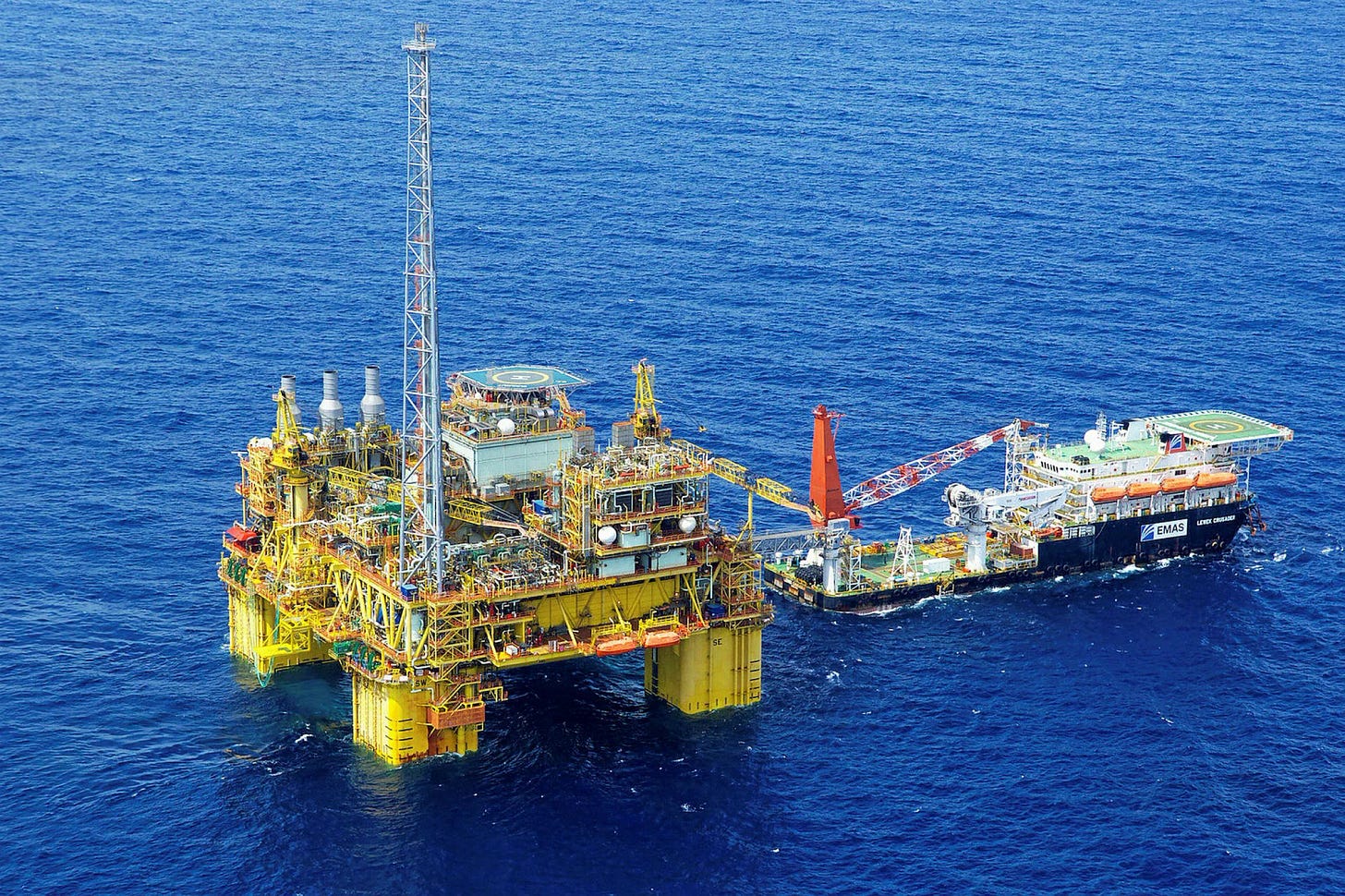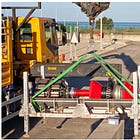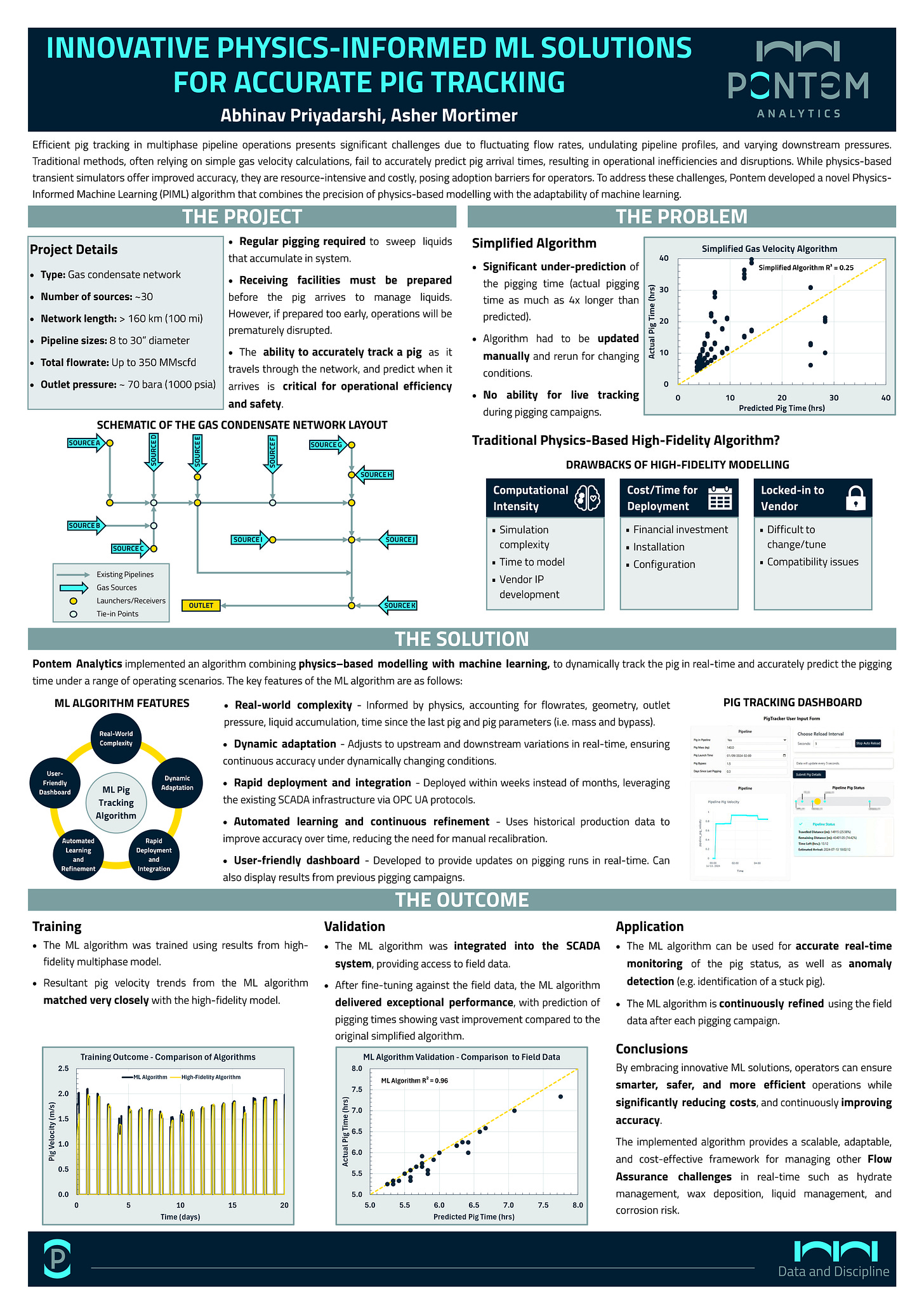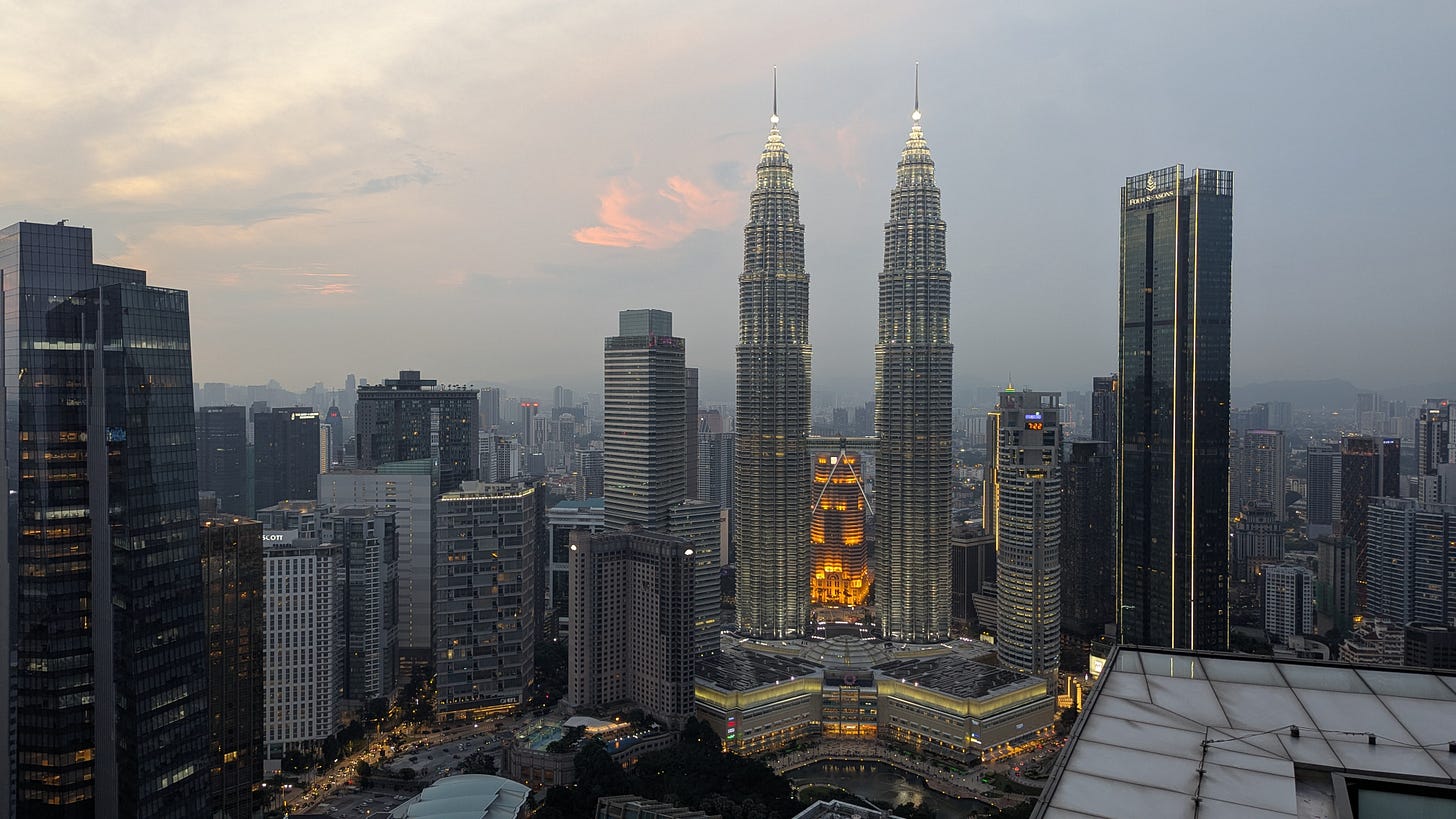Pipelines, Pigs, Palm Trees and Paradise
Recapping last month's SPE Workshop: Evolution of Flow Assurance
SPE held their biennial Flow Assurance workshop in Kuala Lumpur, Malaysia recently. Having unofficially adopted “KL” as my second home, and with Pontem Analytics’ close affiliations with Malaysia, I had the opportunity to attend the workshop as our representative.
The location
The venue for the workshop was the city of Kuala Lumpur, Malaysia.
Malaysia is a vibrant and diverse Southeast Asian country, known for its cultural richness, rapid economic expansion, and stunning natural beauty.
The country is home to a multicultural population comprising Malay, Chinese, Indian, and Indigenous people. This makes it a melting pot of languages, religions, festivals, and FOOD!
Kuala Lumpur is the capital of Malaysia and perhaps most famous for the Petronas Twin Towers, once the tallest building in the world. This global city has managed the delicate balancing act of developing into a modern metropolis, while retaining the charm of its colonial and Islamic heritage. It is the type of city where you can find iconic skyscrapers, colossal shopping malls, and fine dining restaurants, right next door to stunning mosques, bustling open-air food courts, hectic markets, and noisy street vendors.
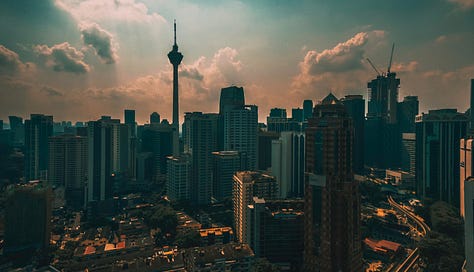
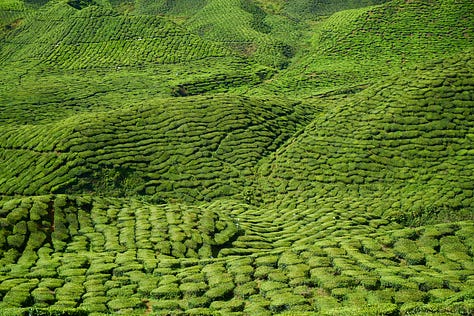
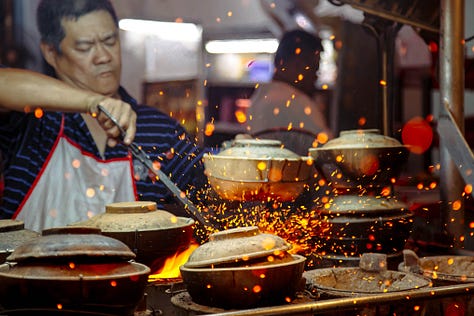



Located at the crossroads of major shipping lanes, Malaysia holds strategic importance in global trade and commerce, with a reputation as a rapidly emerging economy.
Malaysia is also a country rich in natural resources, including oil and gas. It is one of Southeast Asia’s leading producers, with major offshore reserves, particularly in the states of Sarawak and Sabah on the Island of Borneo. The country is also a key player in the LNG market, serving key markets in Asia including Japan, South Korea, and China. It is currently the world’s fifth largest LNG exporter.
The offshore and deepwater environments of much of Malaysia’s major reserves, combined with typically high wax-content crudes, and maturing assets makes Flow Assurance a key concern to the industry’s continuing success.
The workshop
The workshop took place over 2 days, in the heart of Kuala Lumpur, a stone’s throw from the famous tourist strip of Bukit Bintang.
Experts in the fields of Flow Assurance, Production Chemistry and Process Engineering descended from all over the region. I must say, it was quite an honour to be sharing the room with over 100 of my like-minded peers…an opportunity I had not experienced in the previous 14 years of my career. I imagine such a large gathering (floc or flurry if you may?) of Flow Assurance experts would be extremely rare and so it felt like a very auspicious occasion.
The theme for the workshop?
Evolution of Flow Assurance - Learnings from the Past and Navigating Future Challenges
The workshop consisted of a series of technical presentations split across 7 sessions covering important Flow Assurance themes as follows:
Late-life challenges
Deepwater and marginal fields
Solids and contaminants
Optimal fluid characterisation
Evolution of the Flow Assurance industry
Digitalisation to de-risk, predict and optimise
CO2 transport
Emerging solutions and technologies
In addition to the technical presentations, there was also a poster session, and plenty of opportunities to network. It was great to be able to meet old colleagues and acquaintances, as well as make many new connections.
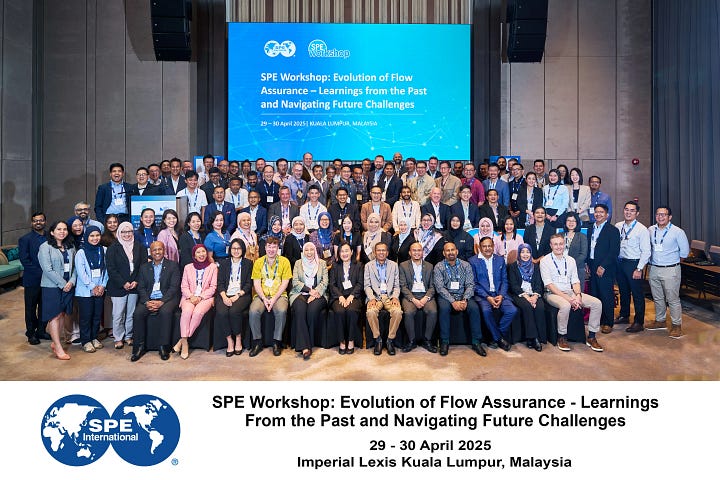
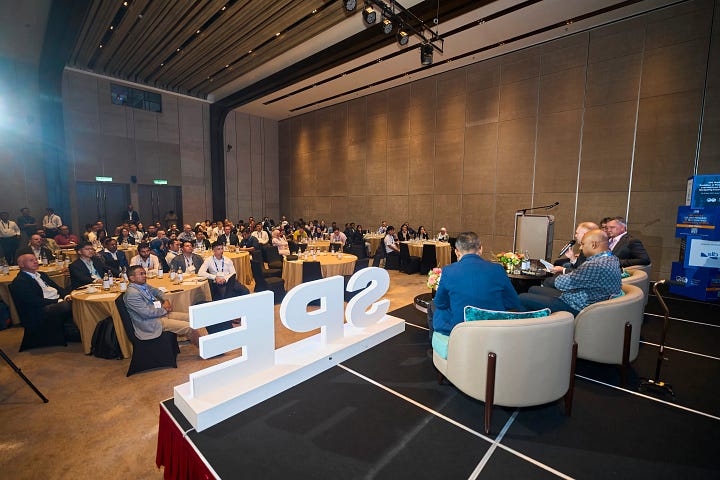
Throughout the 2-day workshop, there were plenty of thought-provoking presentations showcasing the latest and greatest in Flow Assurance. Some of the common themes and highlights of the workshop were as follows:
A spirited discussion on how to inspire, train and most importantly, retain the next generation of flow assurance engineers as the pioneers of the flow assurance field begin to retire.
An update on some of the latest features in the transient multiphase simulators that are industry-standard tools for flow assurance studies.
The development and deployment of chemicals for management of a myriad of flow assurance issues including wax, scale, emulsion and asphaltene deposition.
A novel solution for managing slugging in risers.
The increasing use of artificial intelligence (AI) and machine learning (ML), including in the development of digital twins for online monitoring and for chemical selection.
The poster child
In addition to my attendance at the workshop as a delegate, I was also there to present a poster showcasing Pontem Analytics’ innovative work. The subject for our poster was a physics-informed machine learning (PIML) algorithm that we developed for accurate pig tracking, combining the precision of physics-based modelling with the adaptability of machine learning. This work was discussed in a previous post by my colleague Abhinav Priyadarshi, the link for which is provided below.
The poster garnered plenty of interest from those who attended the workshop. I thoroughly enjoyed discussing the details of this case study with my peers and it was highly encouraging to see their reactions as the power of machine learning, and digital tools that can be deployed in weeks instead of months dawned on them. A copy of the poster that was presented at the workshop can be found below. For any enquiries on the subject of the poster, or PIML solutions in general, please don’t hesitate to reach out to us at Pontem Analytics.
Following the presentation of the poster, there were plenty of productive discussions with other delegates at the workshop about Pontem Analytics’ capabilities, and about exploring potential collaborations in the future. Such interactions confirm that indeed, combining domain knowledge with digital tools and data analytics will be crucial to advancing our industry in the future, and Pontem Analytics has the experience from countless projects to deliver such solutions. It is our ambition to continue to explore opportunities to bring such innovations to Malaysia, and indeed the region of Southeast Asia.
The wrap
After a long, but highly rewarding two days, the workshop wrapped up with some casual drinks up on the 53rd floor. Some refreshing beverages in the 30+ degree humidity, coupled with a stunning view of KL’s world-famous skyline was definitely a fitting finish to a fantastic event. I look forward to the workshop’s return to these streets in another 2 years.


